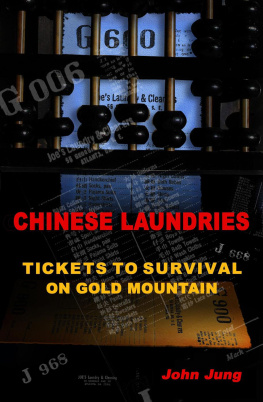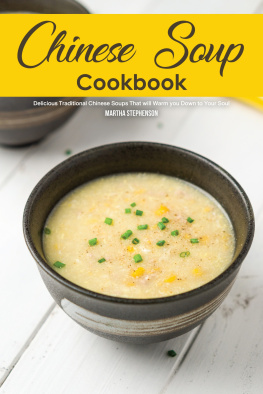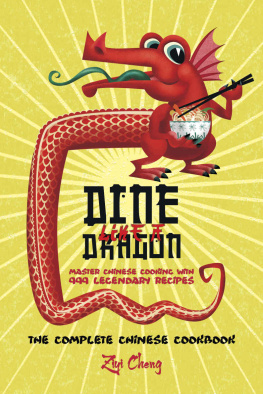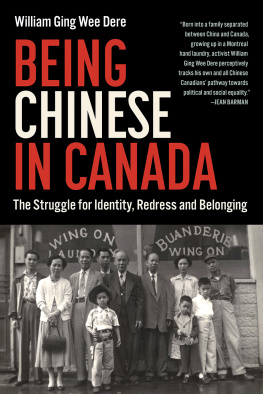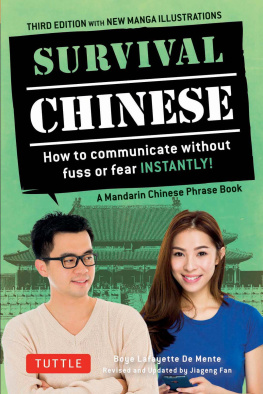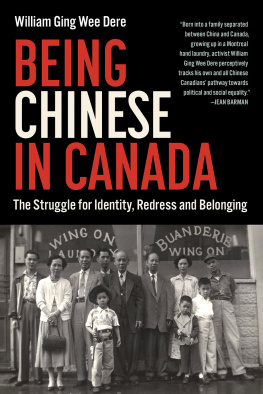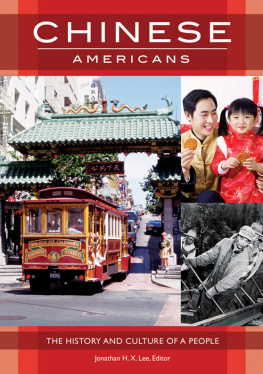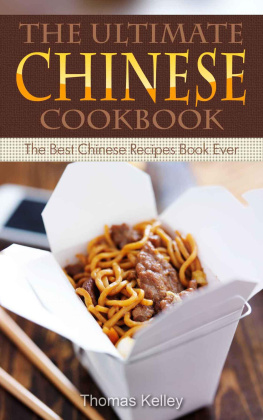Chinese Laundries: Tickets to Survival on Gold Mountain
John Jung
Published by Yin and Yang Press, 2018.
While every precaution has been taken in the preparation of this book, the publisher assumes no responsibility for errors or omissions, or for damages resulting from the use of the information contained herein.
CHINESE LAUNDRIES: TICKETS TO SURVIVAL ON GOLD MOUNTAIN
First edition. April 2, 2018.
Copyright 2018 John Jung.
ISBN: 978-1386430025
Written by John Jung.
10 9 8 7 6 5 4 3 2 1
Praise for Chinese Laundries
Chinese Laundries: Tickets to Survival on Gold Mountain is another important window into the history of the early Chinese immigrants to North America, one that transcends all regions. The tracing of the trail of Chinese migration into America's heartland and the Deep South as many entered the laundry business sheds light on their complex and difficult journey. The coverage of the virulent anti-Chinese sentiments in large cities as well as small hamlets exposes the hostility they had to overcome. The laundrymen faced struggles, challenges, and even disappointments; yet, the Chinese laundry became a valued and necessary enterprise in countless communities for several decades.
Sylvia Sun Minnick, SamFow: The San Joaquin Chinese Legacy and Stockton's Chinese Community
Professor Jung's book has made a significant contribution to the history of Chinese laundries in America. The story is best told by someone like Jung who experienced a laundry life, and understands its psychological impact on the Chinese laundrymen and their families. It is hard to imagine the difficulties that the laundrymen encountered in making a living in a harsh and hostile environment. Bachelor laundrymen, like those with families back in China, suffered lonely lives. Those who had families with them worked hard to ensure that their children would have advantages that the laundrymen could never attain here. Murray K. Lee, Curator of Chinese American History, San Diego Chinese Historical Museum, and the son of a Chinese laundryman and restaurateur
A masterwork of definitive scholarship and heartfelt composition on this singularly important subject. Jungs own life in one such historic family business lends unique insight to a topic often cited but little explored until now. An academically solid effort that is much enhanced by several personal narratives from other Children of the Laundries. This rewarding study of an era marked by invention born of dire necessity, an unforgiving host society that demanded Chinese laundrymens services but then punished them for being too good at it, is a long overdue analysis of a familiar experience hidden in plain sight.
Mel Brown, Chinese Heart of Texas, The San Antonio Chinese Community, 1875-1975
Jungs book on Chinese laundries is a welcome contribution to Chinese American studies that depicts the plight of early generations of Chinese caught in the predicament of operating laundries to provide for their families, either in China or in America, while enduring extreme hardship and loneliness in one of the few occupations open to them until the end of World War II in the U. S. and Canada due to racism. It vividly portrays the lives of Chinese laundrymen with the inclusion of historic documents, photographs, newspaper article excerpts, and revealing personal stories and insider observations from a few of the many who, like the author, grew up and worked in their family laundries. The subject deserves attention and further exploration in view of the significant impact that the laundry had not only on the Chinese American experience, but also in the social and cultural histories of the U.S. and Canada.
Joan S. Wang, Professor of History, National Taiwan Normal University
This is a remarkable book. It offers a comprehensive historical study of the Chinese laundries in the United States, a profound analysis of the psychological experiences of the Chinese laundrymen in America and their families in China; and above all, written by someone who has intimate experiences with the Chinese laundry, it is a tribute to those Chinese immigrants whose labor and sacrifice laid the foundation of the Chinese American community, and a testimony of the Chinese laundrymens resilience, resourcefulness, and humanity.
Renqiu Yu, Director,Asian Studies Program, Purchase College SUNY, To Save China, To Save Ourselves, The Chinese Hand Laundry Alliance of New York
Some Reader Comments
... appreciated that you wrote this book, because it has given me a deeper perspective in what it means to be a second generation Chinese American of emigrant parents who operated a Chinese laundry ... makes me not only value and respect my parents, but for other emigrant parents who desired their children to be prosperous.
... It is amazing to learn how others grew up with similar experiences...the excerpts made me both laugh and cry. One thing for sure is that growing up in a Chinese laundry is colourful and interesting. Working class ethnic culture is so sur-real. Elwin Xie, Vancouver
Congratulations on a landmark achievement. We know how much work you put into this volume and I am highly honored to be a small part of your accomplishment. Thank you so much for preserving this part of history. I think you will be long remembered for your work. Ken Lee,.
Growing up working in my mom and dad's laundry made me uniquely who I am. It is often difficult tell my kids about my experiences as a the son of immigrant parents and the conflict of living between two cultures. One of my bucket list goals was to honor my parents by writing a history of the Chinese laundry and producing a PBS documentary. Professor Jung beat me to the punch. He has writing a well researched history of the Chinese laundry suppled with oral histories of people who actual grew up and worked in laundries. This is a must read for anyone interested in understanding the Chinese American experience. By the way you don't have to be Chinese to love this book, it is really about the immigrant experience and the pursue of the American dream. After all we are all the children of immigrants so Professor Jung's book is really about the experiences of our ancestors. Well maybe one day I can still get that PBS documentary made. William W. Yee
I lived the stories presented in Chinese Laundries. It brought back memories of how hard my parents toiled daily in their laundry and dry cleaners to give me the life they believed was deserved. I am indebted to my parents and appreciate Dr Jung's insight into my childhood. Read it to appreciate your life and thank your parents and grandparents for their sacrifices.
... My father entered the United States as a "paper son", as did many who told their stories in these books, and operated a laundry. We lived in a loft about the laundry with no bathroom. My father provided a large galvanized bucket filled with water and disinfectant for us to use at night; in the morning he carried it down the stairs to empty... My sister and worked in the laundry growing up until we graduated from high school. It was hard work, sorting out dirty, smelly laundry, starching shirts, collars and ironing. My father did this every day except Sundays from the time he entered this country until he closed his laundry in 1978. My parents were hard workers and never complained at least not openly, as I did whenever I felt we were being taken advantage of because we were Chinese. Years later I asked my father why he had come to the United States despite opportunities denied him because of his race. His answer was, to find a better life for himself and for us, and that America was the land of opportunity.... Irving D. Moy

